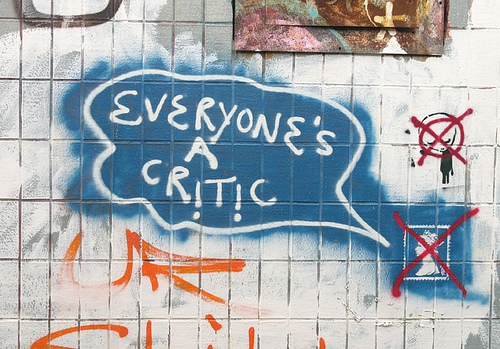Anyone can use Cognitive Behavioural Therapy techniques to help manage thoughts and feelings
It’s easy to lead ourselves to believe that we cannot change how we feel. Granted, it can be very difficult, but how we feel can very much depend on our thought processes and how we choose to think about things. By changing the way we think, it’s possible to change the way we feel.
Something that can severely affect the way we feel is criticism. But hurtful as it can be, criticism is an opinion, not a truth. Even feedback that is offered with love may not tell the whole story; criticism tends to be short n sharp and in no way acknowledges the complexities of the situation.
For instance, if someone were to tell you that you “don’t think of others enough”, or worse, that you are just “always selfish” it’s easy to recognise that the criticism comes because of a specific circumstance the critic is experiencing, and it in no way encompasses everything. It is a snapshot criticism, and we don’t know the motive for it, which may well be the important matter.
When people criticise others, they are often expressing their own insecurities – they are mostly talking about themselves, not you.
By choosing to think about the way you respond to criticisms, rather than just accepting them and feeling bad about them, you become empowered to take control of the effect they have on you. A great way of doing this is to actually consider your responses to the criticism.
The only way to respond is to focus on the actual criticism as one possibility amid many.
Hence, each criticism should have multiple responses; these should be written down – Cognitive Behavioural Therapy (CBT) needs tools to begin with, and writing is a powerful tool.

Example criticism
“You’re always selfish.”
Possible responses:
- I’m not always anything, I’m not always selfish, but I can see how you might feel if you’re not getting what you want from me.
- It’s not selfish to want what’s best for me. I can only cope with so many things, there are some things that cannot, should not and must not be a priority for me.
- I agree that I my actions often start from what I like, enjoy and would like to see happen, but I am a thoughtful person, and I think about how things might affect others.
- It’s not my intention to ignore your needs, but I haven’t fully understood your desires or concerns; can you tell me a little more about how you feel about this specific detail and we’ll see if we can find a win win outcome.
- What would you like to happen next? If the two of us disagree on a point, we’ll need to talk about compromise; I don’t believe either of us means to be selfish, but each of us is entitled to our own point of view.
- I have a responsibility to this group / project that goes beyond what I want. I’m not acting in a selfish manner; I’m acting in a way that I believe is best considering there’s no single ideal action to take. It’s my responsibility to do this, even if it’s impossible to get it 100% ‘right’ I still need to make the decision.
- I don’t intend to be selfish, I just need to be responsible for what I do and what I feel, and you should take responsibility for what you do and what you feel, because I will not.
- Every day I do a lot for other people, much of which doesn’t benefit me, much of which I don’t particularly want to do, so, on balance, your criticism seems to just be an attack based on your own selfish wishes. Please sod off.
- It hurts to be thought of as selfish – I’ll take some time to think through what you’ve said, goodbye for now.
- It’s OK for us to disagree about a point, it’s not OK to devolve into insults.
This isn’t particularly about responding to the person, it’s about working out how you feel about the criticism.
Once you’ve worked through, in writing, all your possible responses, you can see that actually, no one knows how selfish you are; there’s no scale, no score that can tell us. You can now recognise that the value you place on the critic’s words is up to you.
You might now order (rank) your statements based on positivity, and appropriateness to the specific situation.
Nothing is true, everything is modified by the environment and the baggage the other person is carrying.
Please see a very popular article on ‘Chronic Invalidation‘ to see how continuous miserable criticism can drive some people to self-injure.

1 Comment
Withdrawing 53 320 Dollars. Gо tо withdrаwаl > https://telegra.ph/BTC-Transaction--491848-03-14?hs=d82f9672b4561fe264a3029fc0d164e0&
April 15, 2024pu41a3